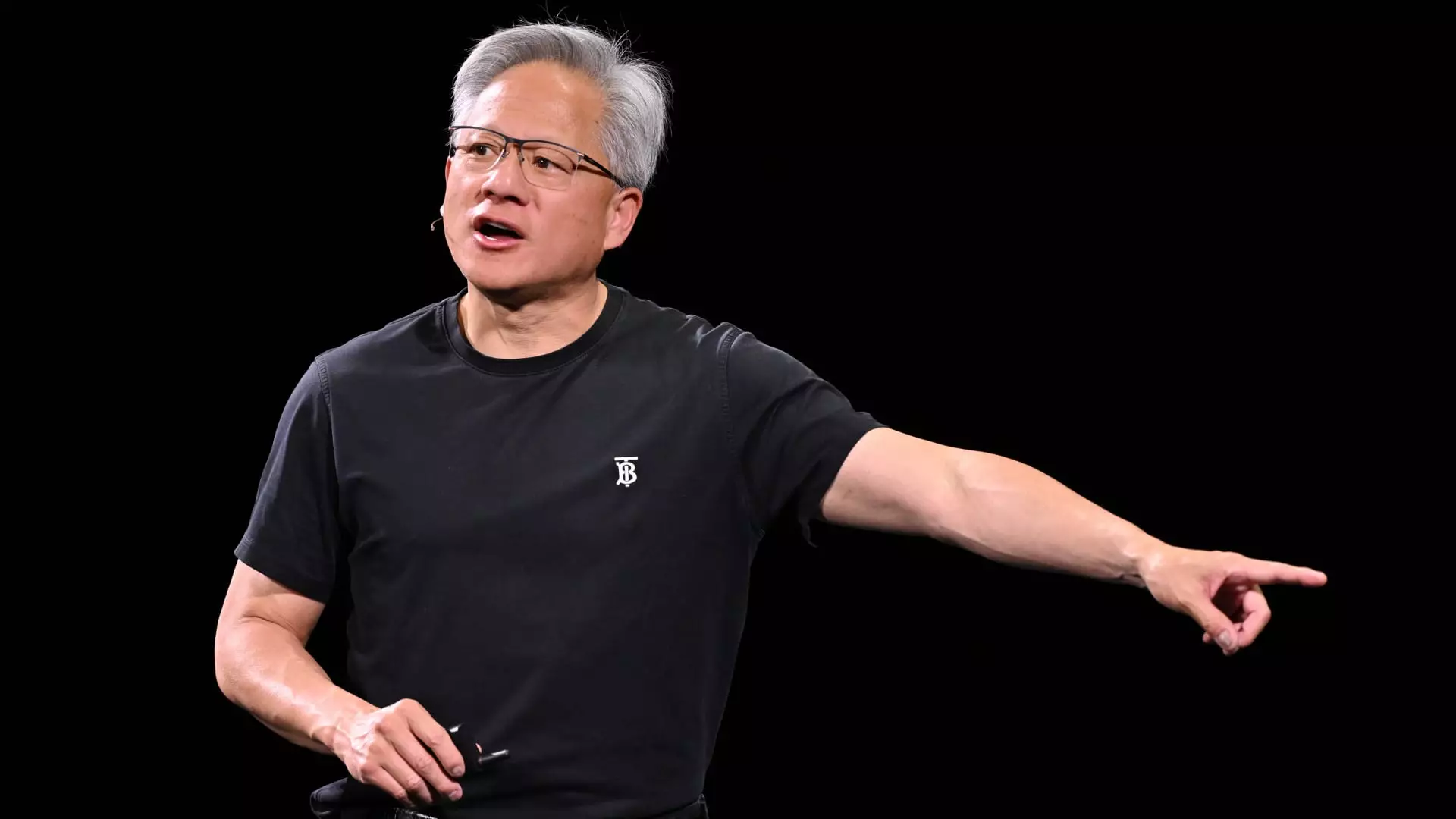The recent wave of insider selling at Nvidia, totaling over $1 billion in the past year, might raise eyebrows among investors who instinctively see large sell-offs as a red flag. However, this rapid unloading of shares—especially $500 million just in the last month amid Nvidia’s soaring stock price—deserves a more nuanced interpretation. Insider sales are frequently misread as signs of trouble, but in Nvidia’s case, the sales appear less about deteriorating confidence and more about strategic wealth management by insiders, especially CEO Jensen Huang.
The Context Behind the Numbers
Nvidia’s stock has surged dramatically, climbing 44% over the past three months and more than 17% this year alone, even while navigating geopolitical uncertainties and export restrictions on AI chips. The market’s bullish response illustrates strong confidence in Nvidia’s long-term prospects. Interestingly, Huang’s stock sales are part of a prearranged plan announced earlier this year, designed to systematically diversify his holdings, which is a common and prudent practice among billionaires with concentrated wealth in a single stock. Given his staggering net worth of approximately $138 billion, selling shares worth hundreds of millions does not reflect insecurity but rather sensible diversification and liquidity needs.
The Bullish Outlook from Leadership
Despite significant offloading, Nvidia’s leadership remains bullish on the company’s trajectory. The CEO explicitly highlighted robotics as a major growth avenue that extends well beyond their famous AI chips. This forward-looking emphasis, coupled with the company’s recent rally after the annual shareholder meeting, indicates that the insiders firmly believe in sustained future value creation. The stock’s rebound to an all-time high following these events further proves the market’s trust in Nvidia’s strategic direction, even amidst the insiders’ selling.
Distinguishing Between Insider Selling and Market Signaling
The mechanics of stock sales by executives are often misunderstood. Unlike random or reactive sell-offs prompted by negative news, planned and gradual selling schemes—such as Huang’s sale of 6 million shares through the end of 2024—are typically motivated by financial planning rather than doubts about the company’s future. Importantly, these sales coincide with Nvidia’s robust performance in a competitive and rapidly evolving industry. The narrative that insider sales equal bad news is overly simplistic. Nuanced analysis reveals that such moves can occur alongside very optimistic outlooks and strong operational performance.
Balancing Reality with Market Psychology
It’s critical for investors not to overreact to headline figures without understanding the context. Nvidia’s insiders are not abandoning ship; they are capitalizing on a historic rally to manage risk and ensure long-term financial stability. Given the company’s continuous innovation in AI and robotics, and its global market position outpacing tech giants like Microsoft and Apple in valuation, such stock sales should be seen as smart, positive steps by insiders who are confident enough in the company to remain deeply invested while also securing liquidity. This savvy balance reflects maturity in wealth management rather than vulnerability in business fundamentals.


Leave a Reply